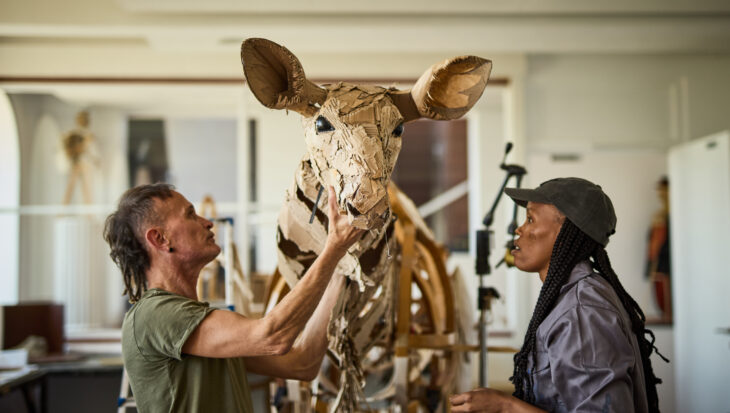‘The Herds’ will be arriving in London this Friday!
Have you heard? A breathtaking arts initiative, ‘The Herds’ will be arriving in London this Friday.
Posted 27 Jun 2025

Posted on the 19th April 2013
The BUAV has published an undercover investigation into vivisection, exposing terrible callousness, incompetence, cruelty and regulatory breakdown at a leading university.
Based on months of filmed and other evidence by a BUAV investigator working at Imperial College London, the new report, called Licensed to Kill, describes research involving the infliction of major organ damage, invasive head surgery in which mice had part of their skulls removed and replaced with a window, and animals being restrained while a long tube was forced into their throats and substances introduced into their stomachs.
With the technicians often playing loud music as rats and mice were experimented on – and, when no longer wanted, crudely killed by decapitation and neck breaks – some of the staff exhibited shocking levels of incompetence and ignorance about the experiments to which they had been assigned.
As one researcher was cutting open an under-anaesthetised rat with scissors to withdraw blood and remove his organs, the rat lifted his head at least twice. The researcher declared: ‘Oh, I hate it when he does that.’
Another researcher’s responsibility was to monitor a treadmill, on which the animals were forced to run to the point of exhaustion and were given an electric shock if they stopped. The researcher told the BUAV agent: ‘It’s quite boring. It’s not really a very interesting experiment.’
Imperial College’s response has been to commission an ‘independent’ inquiry chaired by Professor Steve Brown, Director of the Medical Research Council’s Mammalian Genetics Unit at Harwell, Oxford. Brown is not only a strong supporter of vivisection but his institution actually funds animal research at Imperial.
BUAV is demanding a genuinely independent inquiry and is calling for mass public support for its campaign. Visit their Licensed to Kill campaign website.
Have you heard? A breathtaking arts initiative, ‘The Herds’ will be arriving in London this Friday.
Posted 27 Jun 2025

As the greyhound racing industry releases its annual data on the number of dogs’ deaths, a raft of well-known names - alongside their canine friends - has called upon the Government to end greyhound racing....
Posted 26 Jun 2025
